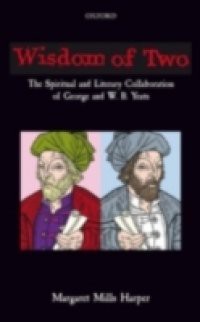Georgie Hyde Lees, who married W. B. Yeats in the autumn of 1917, has for many years occupied a secondary or even marginal position in most studies of her famous husband. She has been depicted as a poor choice for romantic partner, political comrade, or literary collaborator. While often thanked in acknowledgments pages and regarded as a minor editor or secretary, she usually receives only footnote status in literary analyses. Most often, she has been cast as anamateur spirit medium or, less generously, as a manipulative perpetrator of an elaborate mystical and sexual hoax out of which arose Yeats's philosophical treatise A Vision and a raft of poetry, plays, and other literary works. Yet George Yeats co-wrote the automatic script and co-created the 'system' ofcosmic geometry, based on a dialectics of desire. Coming to terms with the 'system' is vital to understanding the late work of the poet, yet a thorough critical study of the Yeatses' 'incredible experience' has never been written. Harper, one of few scholars who is intimately familiar with the large mass of documents, provides the first such study. She analyses the thousands of pages of published and unpublished papers, the particularities of their unusual composition, the finished literaryworks that depend upon them, and historical contexts such as the spiritualist movement, automatism (including its relation to communications technology), sexual politics, and war. Wisdom of Two airs critical and theoretical issues that are vital to understanding the Yeatses' spiritual, literary, anddramatic collaboration.

